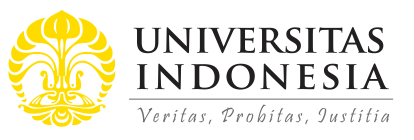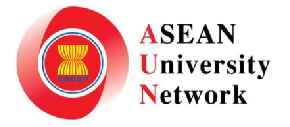
Abstract
Dental caries affect 87.4% of Filipinos while 48.3% have periodontal disease. In most developing low-income countries like the Philippines, more than 90% of caries is untreated. Because of the evident disparities in health, high cost of healthcare, unaffordable and unavailable health service, there was a call for reorientation towards prevention on a mass scale by the World Health Organization. This pushed for oral health promotion in schools. Schools give an ideal setting for introducing preventive measures for health with the objective of developing sustainable health promoting behavior change and long-term health outcome improvements. The dental interns from the University of the Philippines College of Dentistry use community-based education to assist the community in developing programs that promote, achieve, and maintain oral health. The partners tapped in the inter-local health zone of AMIGA in Cavite were the elementary and high schools in the 5 municipalities. The schools engaged in the program depended on the priority barangay identified by both AMIGA and the University. Thus, needs analysis was the first step in isolating the emergent oral health problem and eventually drafting the program. Consultation and presentation of the oral health status of the students to the stakeholders, specifically parents, teachers, municipal dentist, municipal health officer, and local government officials were scheduled so that the needed support and commitment are both realized. The programs and activities done in the partner school were Oral Screening, Atraumatic Restorative Treatments, Scaling and Polishing, Topical Fluoride Application, and Oral Health Promotion. Both preventive and curative treatment modalities were employed in addressing dental disease. Choice of strategy was dependent on the resources of each municipality and reflects the prioritization of the local government on health. Success of the programs relied heavily on the participation of all the stakeholders from organizing, financing, promotion, and implementation. Endorsement of the activities to the municipal dentist, together with referrals of specific cases not managed in the community setting was done to facilitate monitoring and evaluation.
References
Adyatmaka, A., Sutopo, U., Carlsson P., Bratthall, D., & Pakhomov, G. (1998). School-based primary preventive program for children. Affordable toothpaste as a component in primary oral health care. Experiences from a field trial in Kalimantan, Barat, Indonesia. Geneva: WHO.
Alazmah, A. (2017). Early childhood caries: A review. The Journal of Contemporary Dental Practice, 18(8), 1-6. Doi: 10.5005/jp-journals-00000-0000
Araojo J.R. (2003). Philippine country report on school health promotion programme. Proceedings of the 2nd Asian conference on oral health promotion for school children: Prospectus for our future generation (pp. 103–110). Ayyuthaya Bangkok: Thammasat University.
Bourgeois, D.M. & Llodra, J.C. (2014). Global burden of dental condition among children in nine countries participating in an international oral health promotion programme, 2012-2013. International Dental Journal ,64(Suppl. 2), 27–34. doi: 10.1111/idj.12129
Cariño K.M., Shinada K., & Kawaguchi Y. (2003). Early childhood caries in northern Philippines. Community Dent Oral Epidemiology, 31, 81-89.
Community Dental Practice II (CDPII), 11th Edition. Edited by: Santos,J.K.R. (2016) for School Year 2015-2016 [Unpublished manual]. Manila, Philippines.
Curnow, M.M., Pine, C.M., Burnside, G., Nicholson, J.A., Chesters, R.K., & Huntington, E. (2002). A randomized control trial of the efficacy of supervised tooth brushing in high-caries-risk children. Caries Res, 36(4), 294-300.
Department Order No. 65, s. 2009 – Implementation of Essential Health Care Program (EHCP) for the School Children. (n.d.). Retrieved from http://www.deped.gov.ph/orders/do-65-s-2009
Feitosa, S., Colares, V., & Pinkham, J. (2005). The psychosocial effects of severe caries in 4-year-old children in Recife, Pernambuco Brazil. Cad Saude, Rio de Janeiro, 21(5), 1550-1556.
Gauba, A., Bal, I. S., Jain, A., & Mittal, H. C. (2013). School based oral health promotional intervention: Effect on knowledge, practices and clinical oral health related parameters. Contemporary Clinical Dentistry, 4(4), 493–499. http://doi.org/10.4103/0976-237X.123056
History of UP Manila. (n.d.). Retrieved from https://www.upm.edu.ph/node/36
Jürgensen, N. & Petersen, P.E. (2013). Promoting oral health of children through schools – Results from a WHO global survey 2012. Community Dental Health, 30, 204-218. Doi: 10.1922/CDH_3283Petersen15
Mason, J. (2010). Concepts in Dental Public Health 2nd edition. Baltimore, MD: Lippincott Williams & Wilkins.
Monse, B., Naliponguit, E., Belizario, B., Benzian, H., & Helderman, W.V.P. (2010). Essential health care package for children- the ‘Fit for School’ program in the Philippines. International Dental Journal, 60, 1-9. Doi:10.1922/IDJ_2420Monse09
Monse B. & Yanga-Mabunga M.S. (2007) The National Oral Health Survey from the Philippines Urgent Oral Needs. Developing Dentistry, 8, (1)
National Survey on Oral Health and Nutritional Status in the Philippines (2006). Philippine Department of Education. Retrieved from http://www.doh.gov.ph/dental-health-program
Paterno, E.R. (2007) Readings on Community Integration for Community Health and Development Program. [Unpublished manual]. University of the Phhilippines Manila, Manila, Philippines.
Patton, G. C., Bond, L., Carlin, J. B., Thomas, L., Butler, H., Glover, S., Catalano, R & Bowes, G. (2006). Promoting Social Inclusion in Schools: A Group-Randomized Trial of Effects on Student Health Risk Behavior and Well-Being. American Journal of Public Health, 96(9), 1582–1587. http://doi.org/10.2105/AJPH.2004.047399
Paulino, C.R. (2008). Technical assistance to the health sector policy support programme: Manual for health reform coordination: Final report. Retrieved from http://www.doh.gov.ph/sites/default/files/publications/DevelopmentoftheManualofLocalReformCoordination.pdf
Petersen, P.E., Bourgeois, D., Ogawa, H., Estupinan-Day, S., & Ndiaye, C. (2005). The global burden of oral diseases and risks to oral health. Bull World Health Organization, 83(9), 661-669.
Philippine Standard Geographic Code. (2017). PSGC: Mendez. Retrieved from http://nap.psa.gov.ph/activestats/psgc/municipality.asp?muncode=042114000®code=04&provcode=21
Reyes, B.P. (2001) The dental health services after Department of Health Re-engineering (Progressive or retrogressive act?). Journal of the Philippine Dental Association, 53(2), 21.
The Local Government Code of the Philippines Book 3 Local Government Units. (1991). Retrieved From http://www.dilg.gov.ph/PDF_File/reports_resources/dilg-reports-resources-2016120_5e0bb28e41.pdf
The Preamble of the Constitution of the World Health Organization (2002). Bull World Health Organ, 8(12), 983-984. Retrieved from http://dx.doi.org/10.1590/S0042-96862002001200015
The UP Charter. (2008). Retrieved from www.up.edu.ph/about-up/the-up-charter/
United Nations Educational, Scientific and Cultural Organization (UNESCO) (2011): UNESCO Institute for Statistics. Global Education Digest 2011. Montreal: UNESCO.
World Health Organization (1986). Ottawa Charter for Health Promotion. Retrieved from www.who.int/healthpromotion/conferences/ previous/o59ttawa/en/
World Health Assembly (2007). Resolution WHA 60.17 Oral health: action plan for promotion and integrated disease prevention. In: Sixtieth World Health Assembly, Geneva. Geneva: WHO.
World Health Organization Regional Office for South-East Asia 2013-2020 (2013). World Health House Indraprastha Estate, Mahatma Gandhi Marg, New Delhi-110002, India. Retrieved from www.searo.who.int
Yabao, R.N., Duante C.A., Valendria F.V., Lucas M., Kassu A., Nakamori M., & Yamamoto S. (2005). Prevalence of dental caries and sugar consumption among 6–12-y-old schoolchildren in La Trinidad, Benguet, Philippines. European Journal of Clinical Nutrition, 59, 1429–1438. Doi:10.1038/sj.ejcn.1602258
Recommended Citation
Alfaro, Arlene Cecilia
(2017).
School-based oral health promotion and intervention in AMIGA (Alfonso, Mendez, Indang, General Emilio Aguinaldo, Amadeo) Cavite.
ASEAN Journal of Community Engagement, 1(2).
Available at: https://doi.org/10.7454/ajce.v1i2.72







